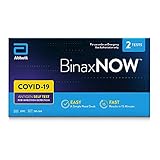Background
The SARS-CoV-2, the virus that causes COVID-19 attaches to human cells using its spike proteins. After attachment, the viruses enter the cells and start replicating.
The SARS-CoV-2 spike proteins can be in the open or closed position, and it is closed until it is ready to attach to the ACE2 receptors; then, it assumes the open configuration.
However, if the spike protein is limited to its close position, then it won’t be able to attach to human cells.
Linoleic acid
A study by Toelzer et al. showed that an essential fatty acid, linoleic acid, can bind to three areas on the spike proteins of the SARS-CoV-2. This prevents the spike protein from assuming the open position and binding to the ACE2 receptor.
They also found that these binding pockets for linoleic acid exist in two other deadly coronaviruses, the SARS-CoV and the MERS virus but not in the four common coronaviruses.
The figures below show the SARS-CoV-2 spike protein in the sides and top views. The linoleic acids are the orange spheres. One binding area is inside a red box.

Intermittent fasting increases linoleic acid.
Research by Washburn and colleagues in humans showed that the group who did a 24-h water-only fast produced more linoleic acid than the control group who did not fast.
Aside from linoleic acid, 73 other metabolites increased. The authors propose that the health benefits of intermittent fasting, such as decreased insulin resistance, improved lipid metabolism, reduced weight and body fat, lower levels of depression, and increased cognitive performance, may result from such changes.
Linoleic acid is an essential omega-6 fatty acid that the human body requires in small amounts. Being essential means that we need it in our diet.
According to the National Cancer Institute, the top sources of dietary linoleic acid in America include chicken and chicken dishes, grain-based desserts, salad dressing, potato and corn chips, pizza, bread, french fries, and pasta dishes. Mayonnaise, eggs, popcorn, and processed meats are also significant sources.
However, too much linoleic acid can cause chronic inflammation and harm your health. It should be balanced with the right amount of omega-3 fatty acids that are found in fish oils and flax seeds.
In summary, linoleic acid is just one way that intermittent fasting will help prevent COVID-19. An interesting thought is if the body continuously makes the spike proteins following the COVID-19 shots, will linoleic acid avoid the adverse effects of the spike protein?
Don’t get Sick!
Related:
- Exercise during fasting hastens ketosis onset
- Exercise Makes Fasting Easier
- Coffee induces autophagy
- Lower risk of COVID-19 hospitalization and deaths with Intermittent Fasting
- Intermittent fasting results in new and stress-resistant the blood cells
- Intermittent fasting for Post-COVID Vaccine Syndrome: Autophagy
- Study: Intermittent fasting results in better COVID-19 outcomes
- Intermittent Fasting while on Diabetes Medications
- Yogurt and Intermittent Fasting Reduced Body Toxins
- Intermittent Fasting Grows New Liver Cells Faster
References:
- Toelzer C, et al. Free fatty acid binding pocket in the locked structure of SARS-CoV-2 spike protein. Science. 2020 Nov 6;370(6517):725-730. doi: 10.1126/science.abd3255. Epub 2020 Sep 21. PMID: 32958580; PMCID: PMC8050947.
- Washburn RL, et al. Pilot Study of Novel Intermittent Fasting Effects on Metabolomic and Trimethylamine N-oxide Changes During 24-hour Water-Only Fasting in the FEELGOOD Trial. Nutrients. 2019 Jan 23;11(2):246. doi: 10.3390/nu11020246. PMID: 30678028; PMCID: PMC6412259.
Discover more from Don't Get Sick!
Subscribe to get the latest posts sent to your email.





























